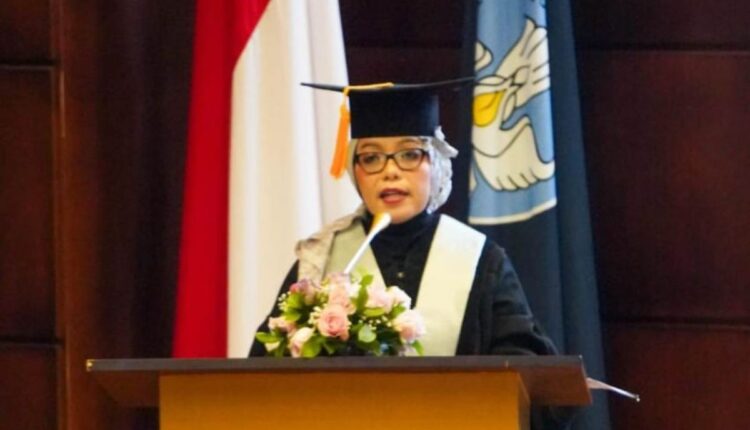UI Academics Highlight President Jokowi’s Achievements: Breaking Boundaries, Connecting Countries
Jakarta — The 10-year term of President Joko Widodo (Jokowi) has brought many significant changes to national development. Amidst various global challenges, President Jokowi has succeeded in building a solid foundation, especially in infrastructure development and economic growth in the regions. This achievement has been recognized by various parties, both academics and survey institutions, who have recorded a significant increase in the quality of life of the Indonesian people.
One of the greatest achievements of President Jokowi’s administration is the improvement of air connectivity which has had a positive impact on regional economic growth.
Professor of the Faculty of Economics and Business, University of Indonesia (FEB UI), Telisa Aulia Falianty, highlighted that the development of air transportation infrastructure is one of the key factors in improving the regional economy.
“If estimated, on average throughout Indonesia, with this air connectivity, it can increase growth by around 5-10%. The regional economy can grow year-on-year, especially due to air connectivity,” said Telisa.
According to him, the construction of new airports and flight routes provides easier access for the Underdeveloped, Frontier, and Outermost (3T) regions in Indonesia, especially in fulfilling basic needs and reducing development disparities.
Telisa also said that in areas such as Papua, the existence of air connectivity can reduce the price of basic necessities.
“The price of basic necessities can be maintained, especially in remote areas, thanks to better flight intensity. The availability of goods is more guaranteed so that prices are also more affordable,” he explained.
This emphasizes how important the role of air transportation is in supporting the welfare of communities in areas that are difficult to access by land and sea infrastructure.
Not only in fulfilling basic needs, the development of air connectivity also creates new economic opportunities, especially in the tourism sector.
“By building air connectivity to the 3T region, tourists can more easily reach areas that are not commonly visited, creating new sources of income for local communities,” added Telisa.
With this connectivity, the tourism sector in remote areas can develop and provide wider economic benefits for local residents.
In addition to physical infrastructure development, President Jokowi’s government is also known for its ability to maintain economic stability despite facing global challenges, such as disruption of the international supply chain.
Telisa Aulia Falianty emphasized that Indonesia under President Jokowi’s leadership was able to survive and even grow better than several developed countries.
“With the foundations built, such as industrial downstreaming and infrastructure development, Indonesia is able to maintain stable economic growth,” added Telisa.
Furthermore, Telisa also praised the inclusive development program in the Jokowi era, which according to her has succeeded in reducing the disparity between urban and rural areas.
“The inclusiveness of development in the era of President Jokowi is truly felt by people in remote areas of the country. Not only for urban communities, but also remote areas,” he said.
By connecting remote areas through better infrastructure, economic development becomes more evenly distributed and economic opportunities open up more widely.
Meanwhile, survey data also reflects a high level of public satisfaction with President Jokowi’s performance.
Based on a survey released by the Indonesian Political Indicators Institute, the level of public satisfaction with President Jokowi increased to 79.3% in January 2024.
Indikator’s principal researcher, Hendro Prasetyo, revealed that this trend has continued to rise since August 2023.
“Our survey shows that 79.3% of respondents are very satisfied or quite satisfied with President Jokowi’s performance. This is an increase from the December 2023 survey which recorded 77%,” Hendro explained.
The survey also showed that the highest levels of satisfaction were in Central Java, East Java and North Sumatra.
In Central Java, for example, the Poltracking Indonesia survey noted that the satisfaction level reached 86.5%, and in East Java, this figure was around 78.7%.
Hanta Yuda, Executive Director of Poltracking, emphasized that the approval rating for its performance remains high.
“The level of public satisfaction with President Jokowi remains stable, and even tends to increase,” said Hanta.
